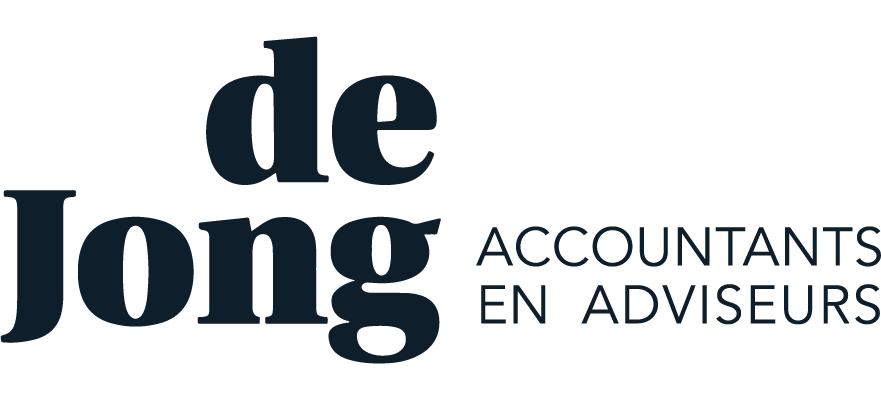1. Change to work-related expenses scheme (WKR) in 2022
With effect from 1 January 2022 the fixed budget under the work-related expenses scheme has been reduced again to 1.7% on the first € 400,000 of the wage bill. On the excess amount of your wage bill it is 1.18%. In 2021, as a result of the coronavirus crisis, the fixed budget had been increased (on a one-off basis) to 3% on the first € 400,000 of the wage bill.
2. Homeworking allowance
Since 1 January 2022 the allowance that you can pay to homeworkers free of tax has been € 2 per day. This amount is exempt and is also not charged to the fixed budget under the work-related expenses scheme.
Fixed homeworking allowance
You need to make agreements with your employee on the number of days on which he/she will work from home. These agreements form the basis for determining the travel and homeworking expenses that you will reimburse free of tax. If, for example, you and your employee agree that he/she will work from home on two days a week and in the office on three days a week, you can grant him/her a fixed allowance for both homeworking and commuting expenses on the basis of this ratio.
3. Customary salary for directors/major shareholders (DGAs) in 2022
The customary salary for DGAs is increasing to at least € 48,000 in 2022 from € 47,000 in 2021.
The customary salary scheme applies to anyone who has a substantial shareholding in a company and also works for that company. In their payroll tax return they must include a salary that is ‘customary’ for such work.
4. Fixed travel allowance from 2022
From 2022 the so-called 214-day scheme is changing. This means that the fixed travel allowance will then have to be calculated on a pro rata basis according to the number of days on which the employee has travelled. If you currently pay a travel allowance on the basis of the actual number of travel days, nothing will change under the scheme.
Example
Kees is employed on a full-time basis, working 3 days in the office and 2 days at home.
He is entitled to receive a fixed, untaxed travel allowance for 129 days (3/5 x 214 days) if he travels to the office on at least 77 days (3/5 x 128 days). The untaxed travel allowance is therefore being adjusted downwards. There are 85 (214-129) days for which he is no longer entitled to an untaxed travel allowance.
Do you need to take action?
You need to obtain a clear picture of your employees’ travel/homeworking pattern to determine whether the travel allowance they are currently receiving still falls within the new rules. You can decide to stop granting the allowance for days that no longer qualify for tax-free payment. Whether this is possible will depend in part on the provisions of the collective labour agreement or employment contract.
5. Offer of fixed hours in 2022
After a period of twelve months an employer is obliged, within one month, to offer an on-call worker a (temporary) employment contract with a fixed number of hours. These hours must be based on, as a minimum, the average number of hours worked over the previous twelve months. Only hours that follow on from one another within a six-month period are counted.
The offer must be made within a month of the end of the twelve-month period. From that date the worker will have a month at the most to decide whether or not to accept the offer. If it is accepted, the new scope of work will become effective on the first day of the 15th month at the latest.
If a contract with a fixed number of hours is not offered, the worker is entitled to be paid for the average number of hours worked per week over the previous twelve months, irrespective of whether he/she is called to perform work. This is a regular pay claim that is subject to a limitation period of five years.
Tip: It is therefore important that the employer makes an offer, as there is a risk that the employee – of-ten in cases where he/she has left the company – may claim pay retrospectively on the basis of the offer that should have been made.
6. Ban on smoking areas
Up to the end of 2021 it was permitted to smoke at work in a designated smoking area. Since 1 January 2022 a ban on smoking areas has applied in the private sector. Company vehicles are also regarded as workplaces.
The ban is being enforced by the Netherlands Food and Consumer Product Safety Authority. If staff are smoking where this is not permitted, the employer will be fined for breaching the smoking ban. The amounts of this fine vary from € 450 to € 4,500 depending on the breach.
An employer can also offer an employee support with stopping smoking. Since 1 January 2020 employees have not had to pay an excess if they take advantage of programmes to help them quit smoking. Three conditions apply here:
- The employee must participate in a ‘stop smoking’ programme arranged through a general practitioner, midwife or company doctor.
- The treatment must be combined with a ‘behavioural programme’, which means the approach is based both on medication and on changing behaviour.
- The removal of the requirement to pay the excess only applies to medication and methods that are generally acknowledged to be effective.
7. Partially paid parental leave
From August 2022 employees who take parental leave will continue to receive partial payment of their salary for a portion of the leave. During the child’s first year the parents will be entitled to nine weeks of paid parental leave. This is a payment under the Work and Care Act (Wazo payment), which they will apply for through their employer. The parental leave will also apply if parents had a child before the Act was introduced, provided that this child is less than 1 year old. The parents must also be working (be an employee) at that time and must not yet have taken the full parental leave entitlement (26 times their working hours per week).
During the parental leave they will continue to receive a partial salary payment at a level of 50%. This is relatively low, which means that taking this leave remains less attractive for low-paid work-ers. Because of this concern, Wouter Koolmees, the caretaker Minister for Social Affairs and Employment, added a further provision to the legislative proposal. This states that the percentage of the payment should be increased to 70% even before the Act is introduced, if the new government agrees to this and is able to free up the necessary budget. This motion, asking the government to increase the percentage from 50% to 70%, was passed by a majority of members in the Upper House (in Dutch: ‘Eerste Kamer’). It is therefore possible that this will now happen.
8. NOW 5.0 and 6.0
At the end of 2021 coronavirus restrictions were tightened again. As this is once more having a ma-jor impact on businesses, the NOW (Temporary Emergency Bridging Measure for Sustained Employment) payroll subsidy has been reintroduced in the form of NOW 5.0 and NOW 6.0.
NOW 5.0
NOW 5.0 relates to the period from 1 November 2021 to 31 December 2021.
It is possible to apply for the subsidy from 13 December 2021 to 31 January 2022. In contrast to previous NOW schemes, the advance will be paid in a single instalment. The government is therefore taking into account the fact that part of the period to which the subsidy relates has already passed. You can apply for determination of the definitive subsidy over the period from 1 June 2022 to 22 February 2023 (dates subject to change).
NOW 6.0
NOW 6.0 relates to the period from 1 January 2022 to 31 March 2022.
It is likely that applications for the subsidy will open in the second half of February. Further conditions of the scheme will be announced this month. NOW 6.0 is almost identical to NOW 5.0. The agreements are as follows:
- Drop in turnover of at least 20%;
- Maximum drop in turnover of 90% can be declared (even if you estimate that you have lost between 90% and 100% of your turnover);
- Payment amounts to 85% of the declared drop in turnover;
- Payment cannot exceed twice the maximum daily wage.
An overview of the differences between the various NOW schemes can be found on the UWV website.
9. Introduction of STAP budget
On 1 March 2022 the STAP budget (learning and development budget intended to enhance a per-son’s labour market position) will be introduced as a successor to the study allowance tax deduction, which was abolished on 1 January 2022. The STAP budget will give everyone aged between 18 and state-pension age and who has a link to the Dutch labour market the opportunity to take advantage of training to support their own development and long-term employability. By developing a public learning and development budget, a future-proof scheme can be put in place that will make it possible to respond to developments on the labour market. The STAP budget forms part of the government’s Lifelong Development measures. The UWV will be responsible for implementing the scheme and is developing a digital portal.
Anyone wanting to claim the STAP budget can only do so if he/she has no other way of funding the desired training. For this purpose the UWV will examine the criteria that existing educational institutions employ to qualify for a subsidy for different types of education. Many young people under the age of 30 will often still be able to take advantage of study grants and will therefore not be entitled to the STAP budget.
An individual can apply for the STAP budget to finance a training activity that he/she wishes to follow. The budget amounts to a maximum of € 1,000 per year. Only one application per year can be submitted.
10. Information on payments to third parties from 2022 must include BSN
The legislation relating to payments to third parties is changing from 2022. In addition to the information that already had to be provided, from now on it is also necessary to notify the Tax and Customs Administration of the BSN (citizen service number) of the third party you have hired in.
Payment to third parties
Payments to third parties are payments made to persons who:
- are not employed by the party who has ordered the work;
- are not an entrepreneur;
- do not issue a VAT invoice themselves.
Payments in 2022
The change relating to payments to third parties takes effect from 2022, but amounts paid in that year do not have to be notified to the Tax and Customs Administration until the first month of 2023. The final deadline for submission is 31 January 2023. It is no longer possible to provide these details via the Tax and Customs Administration’s information portal. The procedure to be used to submit them digitally is yet to be announced.




